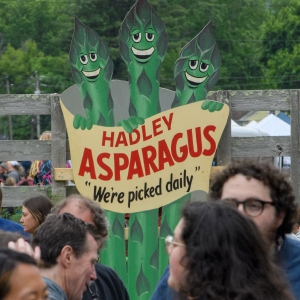State offers coyote hazing tips
| Published: 02-07-2023 2:12 PM |
Coyotes are present in every Massachusetts city and town, according to state wildlife officials, who are out Tuesday with new tips to prevent rare “negative coyote encounters” during their ongoing mating season.
“Whenever you see a coyote in your yard, you should aggressively haze it by physically chasing it out of the yard, spraying it with a hose, making loud noises by banging pots and pans or blowing an airhorn, and throwing small objects like a tennis ball with the intent to frighten not injure,” MassWildlife officials wrote in their new monthly newsletter. “Repeated hazing helps teach coyotes they are not welcome in your yard, similar to how coyotes naturally chase other coyotes out of their own territories. The more people in a community that haze coyotes, the more effective it will be in making them avoid people.”
January through early March is the mating season for coyotes, which means the animals are becoming more active and “the opportunity for human-coyote interaction is high,” according to MassWildlife.
The agency said coyotes are naturally afraid of people but will be drawn to places if there’s a food source, and their fear of people “can disappear over time when animals spend a lot of time around people or when they are frequently fed by people.” The agency lists food sources of interest to coyotes as including small animals, insects, fruits, as well as garbage, pet food, and compost. Bird feeders and suet also attract coyotes to yards, both as a direct food source and by attracting rodents that coyotes feed on.
“Coyotes that become dependent on these supplemental foods can become habituated, act tame, and exhibit bold behavior toward people. Never intentionally feed coyotes. Most recent coyote bites on people can be directly tied to intentional feeding in the community,” according to MassWildlife.
Smaller dogs and cats are viewed as prey by coyotes at any time of year, and during the breeding season, coyotes can become more aggressive toward large-breed dogs, “including dogs as large as labs and shepherds,” MassWildlife said. Most coyote attacks on pets involve dogs that are off-leash or loose in a backyard.
In addition to removing any potential outdoor food sources and safeguarding pets, who when off-leash can be seen by coyotes as intruding on their packs, MassWildlife also explained what it means when coyotes howl.
“Coyotes howl for a variety of other reasons, including locating family members within their territory, warning non-family members to stay away, and advertising for mates during the breeding season,” the agency said. “When one hears a family of coyotes howling, it’s easy to think the area is overflowing with coyotes, but it’s usually just a few coyotes in a family group. Coyotes do not howl to announce a kill; this would attract other wild animals.”

 Holyoke man finds bear paw in his yard
Holyoke man finds bear paw in his yard Petition to block auto dealership on King Street falters in Northampton
Petition to block auto dealership on King Street falters in Northampton  First look at how little Amherst’s police alternative being used called troubling
First look at how little Amherst’s police alternative being used called troubling Developer lands $400K loan for affordable housing project in Easthampton mill district
Developer lands $400K loan for affordable housing project in Easthampton mill district Developer pitches new commercial building on Route 9 in Hadley
Developer pitches new commercial building on Route 9 in Hadley Boyfriend accused in slaying of Hampden sheriff’s assistant, former legislator’s top aide
Boyfriend accused in slaying of Hampden sheriff’s assistant, former legislator’s top aide New HCC president reflects on journey: Timmons sees his own struggles and arc in students’ paths
New HCC president reflects on journey: Timmons sees his own struggles and arc in students’ paths South Hadley man fatally shot in attempted robbery
South Hadley man fatally shot in attempted robbery Historic murals restored at Victory Theatre in Holyoke
Historic murals restored at Victory Theatre in Holyoke Boards balk at limiting use of Hadley Town Common
Boards balk at limiting use of Hadley Town Common
